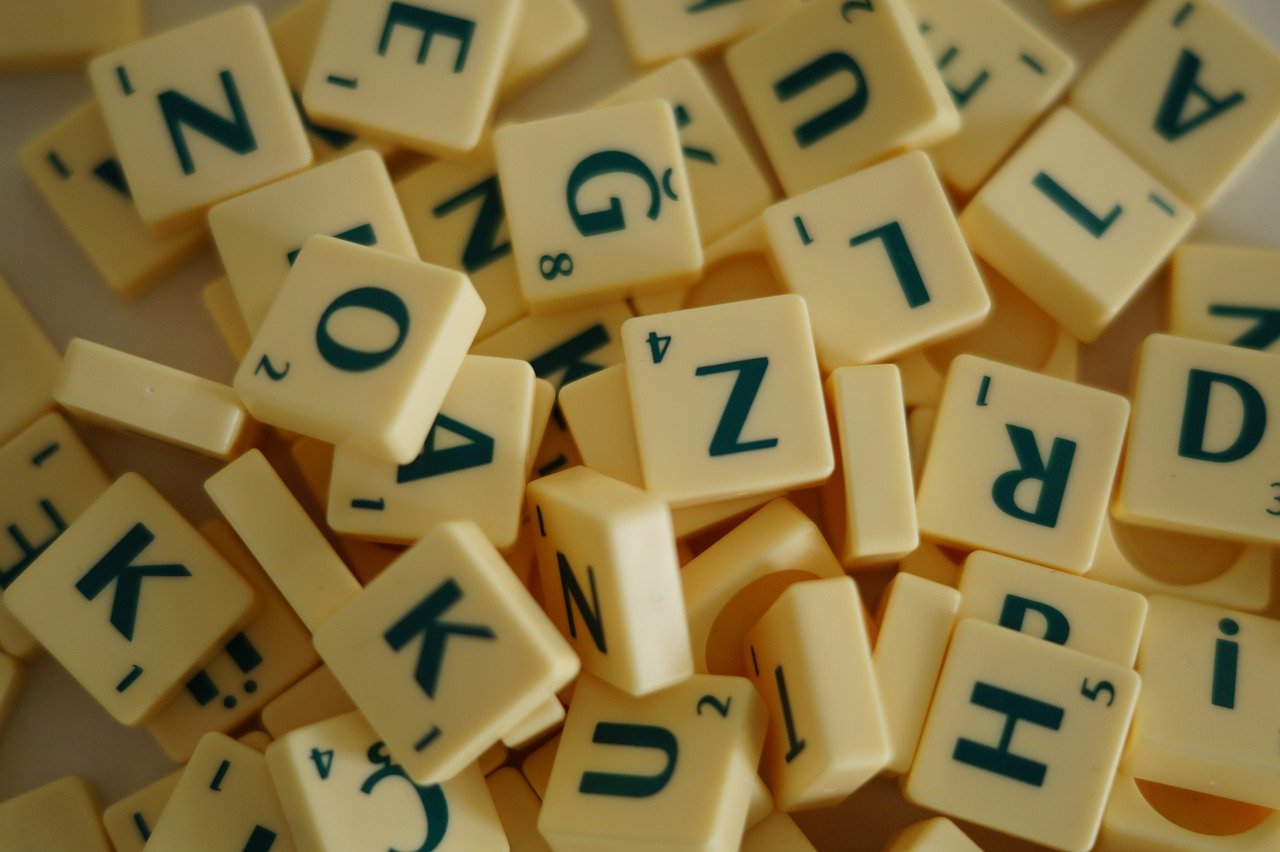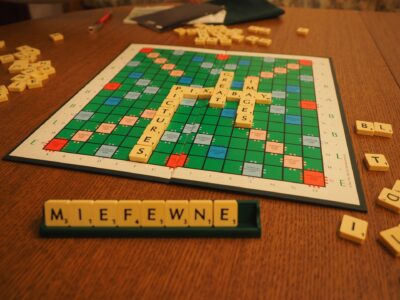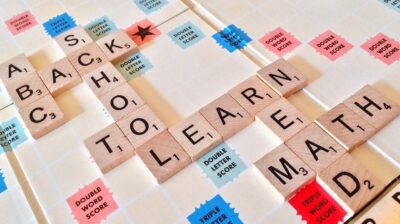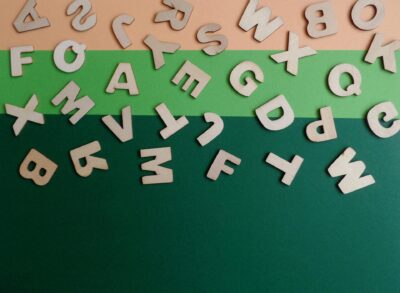
An interview with Robin Pollock Daniels
Look at a list of the best female Scrabble players, and Robin Pollock Daniel will be right at the top. Daniel is a champion Scrabbler who’s won many tournaments over the course of her career as well as earned her way onto more than half a dozen world teams. Now, the Montreal-based player sits down with us to talk about how she got into Scrabble, her tips for novice players, and why she thinks so few women have made it into the upper echelons of the game.
This interview has been edited for length.
How were you first introduced to Scrabble?
It’s all a series of coincidences, it’s kind of funny. Just like everyone else, [my family] had a game at home, with the wood tiles and the box set always missing a couple of tiles. My mother was intro crossword puzzles, she would do it every day, and so I started doing crosswords as well. I always had an affinity for words – even though I wanted to go into the sciences, I was always a very good English student. I always enjoyed playing with words both on paper and just with puns and things, so it was just a natural fit.
Then, when I was in my early twenties, I had to spend a little time in the hospital, and my roommate, we were well enough to play games and talk to each other, and she brought a Scrabble board into the room. So we started playing. Then when I got out of the hospital, my father was visiting our backyard neighbor, and he went into the kitchen to borrow a tool, and on the owner’s wall, she had an article about the Montreal Scrabble club. So he put two and two together and said, oh, Robin played Scrabble when she was in the hospital, maybe she’d be interested in joining the club. So she called me to come over, and I really didn’t know her well. I use the analogy of Moses with the bushes, I parted the bushes [between our yards] and didn’t know what I was going to find, and then I found a whole new world, a whole new life. We sat down and played some games, and I played my first 8-letter word, and it was fellatio. Which I thought was kind of cool.
For someone who might not be familiar with your career, how would you describe your career highlights?
Certainly one was reaching expert level in just a couple of years. Winning that first tournament – my first tournament ever, I played in the Boston area, and I won Best Newcomer. [I was on] at least 7 or 8 world teams, back when you had to earn your way onto it. Probably the biggest [career] highlight was winning the Boston-area tournament as a premier player. It’s the only tournament that has a premier layer that’s very limited in players, usually, and very very very few women ever even made it into the echelon, and then I actually won it one year. Certainly being a top woman has been a highlight, because it’s allowed me to lead by example to other women and to mentor other women.
From your own perspective, why are you so good at Scrabble?
I think it takes a unique kind of personality. It takes someone, obviously, who enjoys manipulating words in their brain. I don’t have to write anything down, I can look at a word, and I can put it into alphabetical order in my brain. If you saw the Queen’s Gambit, she’s lying in bed, and she can move the chess pieces in her head on the ceiling. So we can do that as well with the tiles, with the letters. So an affinity for language.
A lot of competitiveness but a friendly spirit of competitiveness – you can’t be an angry competitor in Scrabble, you’ll be kicked out very quickly. And a bit of an addictive quality as well. Even to this day, I study over an hour a day. So you really need to stick to it, want to study, remember the words, want to play a twenty-game tournament, and then, as soon as it’s over, say “when’s the next one?” You just want to play game after game after game.
And I think you have to be very smart, to be a very high-level player. This is chess with letters. You have to think many plays ahead, and you have to play a game to what is the probability you’re going to pick out of the bag because of the distribution of tiles. You have to be aware of ten things simultaneously.
A lot of readers of this piece might be casual players. For those who haven’t played tournament Scrabble before, what would you say is the biggest difference between tournament and casual play?
It’s the same thing as watching a movie and just enjoying it and going, yeah, I really like it, but I don’t know why, vs. somebody who’s a film critic, who can take apart the cinematography and the editing and all that. You can enjoy it at any level you want. There’s no reason you can’t enjoy Close Encounters of the Third Kind as this really great futuristic sci-fi movie, or you can look at it as a piece of art.
[In Scrabble], not everybody has that compelling need to master the dictionary, and that’s fine. I have lots of friends like that who are in lower divisions, and I remember I’d play a word against them, [like] antiwear, and they’d say, where did you learn that. And I’d say, well, I studied it. And she had no desire to. [But] as long as you don’t mind staying in your lower-division and playing people who also don’t have that burning desire to master it, you’re absolutely fine. You can enjoy it at any level.
Do you ever play Scrabble against non-tournament players, or do you just play against computers and fellow champions?
Between the pandemic and going back to school, I ended up doing a lot of expert commentary for a lot of tournaments, so I played a lot exclusively against computers for the last five years. But, no, I don’t tend to play non-Scrabble players. It’s not enjoyable for anybody, because they’re not gonna know my words. I study every day, and you can do three-letter words up to fifteen, so I do fifteen. Sometimes when I get down the four-letter words, I have this little fantasy in my head that I’m showing people who don’t play Scrabble, and they’ll say, oh, I can do the fours. I know four-letter words. And I’ll tell you that over half of them, if not 75% of them, are obscure words.
And so what pleasure would there be if every time I put down a word, [my opponent] would have to wonder whether to challenge me? Or they would say, well, she plays tournament Scrabble, so I’m not gonna challenge her. Then I could bamboozle them, and play phony words just to suit me, so there’s no joy in that for me. There’s only joy in playing legitimate words that are understood by my opponent to be legitimate words.
There’s only joy in playing legitimate words that are understood by my opponent to be legitimate words.
I know the adding and subtracting of words from the Scrabble dictionary can be controversial. Do you think the changing of the Scrabble dictionary has gone overboard?
No, I don’t think it’s gone overboard. I think that’s what makes Scrabble one of the most exciting intellectual games out there, because, unlike chess, for example, we’re constantly adding new playing pieces. And those playing pieces are the words, and it reflects the dynamism in the world of the new language. So I’m all for adding new words, I think it’s fantastic. In terms of taking back the words, that can be extremely painful, especially when it’s not based on any reality. They took ‘da’ away from us for a long, long time, even though it’s a word all over the place. They finally gave it back to us.
Am I in favor of words like pH? Probably not. I don’t consider that a word. Then there’s the controversy about words due to the more sensitive #MeToo movement, and that’s been a huge, huge debate in the Scrabble community. The discussion as to whether, when we play a word, are we using it intentionally to slur? Or simply as a playing piece? Which is my decision, it’s a playing piece. I’m Jewish, and when somebody plays ‘jewed,’ do I get offended? No. I’ve had orthodox Jews play ‘jewed’ against me, and they’re not offended. It’s just a great way to get rid of the J and the W for a lot of points. That’s all we see it as. But it’s been very controversial.
Do you play any other word games, or is Scrabble it for you?
My aunt once said to me, Robin, you’d make a great bridge player, because of your capacity to think many moves ahead. And I said, you know, Auntie Sylvia, I can only have one obsession, and so I choose Scrabble. I do the New York Times crossword puzzle, I’ll do it only Wednesday to Sunday because Monday and Tuesday are too easy. And I’ve gotten into Wordle now, just because it’s an opportunity to share with family and friends. It’s just a way to say, good morning, this is how I did on Wordle, which is just a way to open communication.
Likewise, I think Scrabble’s the same way. It’s a whole new family. Really, when I retire, I can just go to Scrabble tournaments every weekend for the rest of my life and just see my second family. Scrabble’s not just a game, it’s a microcosm of life. It’s a culture onto itself. And that’s why we do it.
That’s why I’d encourage people who are too afraid to come to tournaments, who think that it’s too serious for them or too difficult for them – yes, it can be serious in the higher divisions. But in the lower divisions, it’s a party. Not denigrating them, because they work hard at learning their words as well, but they don’t put as much pressure on themselves. You can come, and you can enjoy it just like a movie at any level. You can enjoy Scrabble at any level. And I would highly encourage people to come join our family because it’s a beautiful, beautiful family.
Most elite Scrabble champions are men. As a top female player, do you have any personal theories for why that gender gap exists?
I do have a theory, just in terms of how we are brought up. In general, women are brought up to be more yielding and not to be as competitive. In my early days, I would often say sorry if I beat a higher-ranked player as if I didn’t deserve it. I think women can feel more fraudulent than men do. They feel that they don’t belong. Also, just in terms of socialization – and I think this is shifting now – but in the old days, men had a job and women stayed at home. And they thought women weren’t working, but women had 15 jobs compared to the man’s one. So I think men give themselves more permission to spend time on their own personal hobbies. I told you, 35+ years into playing [Scrabble], I’m still studying over an hour a day. A lot of women might find that frivolous, they don’t have time for it, they’re just too busy. Whereas men will give themselves that permission. So I think that’s part of it.
I don’t know if that’s changed, if society has evolved, but I’m not seeing a lot of women coming up through the ranks. Since I started, there have been very very very few top women who have punctured the 2,000 rating point ceiling. I think I and maybe two other women have done it.
What’s one of the most memorable Scrabble words you’ve played?
Once, I played a bingo down, “popliteal,” the area behind your knee. That became a favorite word, because who in the world would have expected – you’re trying to lock up the board while you’re in the lead, and I bingo down to an “I” and I play popliteal?
I once played my ex-boyfriend at the world championship. I was cordoned off, we were at the top table. Everyone was very well aware we were exes, and I played “ratfinks” against him, so that became a favorite word, just because of the irony of playing that word against an ex-boyfriend.
Do you have any advice for casual Scrabblers?
Don’t be put off by a championship player who tells you, quite truthfully, that they devote hours a day to memorizing the dictionary, to studying positions, to learning strategy. There are tremendous amounts of Scrabble theory that need to be mastered to become a top player. Do not be scared by that, because the game can be played at multiple levels, and you just have to ask yourself, what level do I want to play at? And that be at peace with that decision and study as much or as little as you want to. Ultimately, we’re not doing anything to make the world a better place. Maybe we’re doing it to quell our own personal worlds, to make our own personal lives a better place. So just join us, play whatever level, and be happy with that. Then if you find you’re not satisfied with it, you can start studying a bit more and working your way up.
But use it as an opportunity to learn about yourself as a human being, because that’s what Scrabble gives you. How are you when you lose, how do you feel with your opponent across the board? It’s an opportunity to learn life skills. So approach Scrabble not just as a fun hobby. but as an opportunity to grow as an individual. Then no matter what level you achieve as an [player], you’ll achieve a higher level in your growth as a human being.


